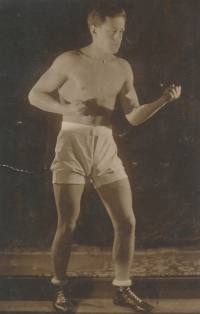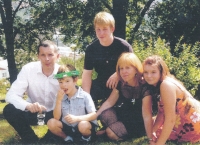Happiness is the feeling of a job well done
Download image
Milan Kodejš was born on January 8, 1933 in Prague-Košíře to František Kodejš and Vítězslava, née Petrova, who had a bookbinding workshop and a stationery shop. The extended family was engaged in business, the Kodejš grandparents ran a barber shop, and the mother came from a family of tailors. All of them were active members of the Košíře Sokol and practiced at the last XIth All-Sokol Meeting. His father died unexpectedly in 1944, his mother ran the shop alone until 1948, when the communists nationalized it. At the end of the war, Milan Kodejš witnessed the building of barricades and acts of violence against German prisoners of war in Košíře. After finishing primary school, he trained as a bookbinder, then studied artistic bookbinding at the Secondary Graphic Industrial School. He completed his compulsory military service in Cheb, where he played league basketball. In 1956, he joined the State Central Archive, and after two years he joined the Memorial of National Literature (PNP), which was crucial for his professional direction. He began to prepare literary exhibitions in a modern spirit, was engaged in restoration, making copies of valuable documents and typography. In 1962 he was accepted into the Union of Czech Visual Artists (SČVU), which allowed him to work “freelance” in parallel. He collaborated with many museums and cultural institutions, invented new restoration methods, and his works were presented at world exhibitions in Brussels and Montreal. In 1980 he left the PNP and worked independently until he was eighty. In 2024 he lived in Prague, devoted himself to free graphic art and was still active in sports.

